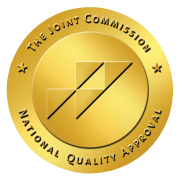What Is Gaslighting
As we move through the sometimes-chaotic waters of life, we must never lose our bearings or the ground of our reality. But we may find ourselves vulnerable to manipulation when it comes to interpersonal relationships. These tactics could even call into question our very perception of reality.
This subtle form of psychological abuse known as “gaslighting” has infiltrated our everyday language, yet its profound impact on individuals and relationships is far from innocuous.
The practice of gaslighting is a destructive psychological game. So let’s look at the arenas where gaslighting usually manifests—from personal relationships to the workplace.
What Is Gaslighting?
The term “gaslighting” gets used a lot these days in social media and on TV. But it’s not just another trend. Gaslighting is an actual form of psychological abuse. If someone gaslights you, they feed you false information to make you question your perception of reality. Being gaslit can feel maddening, but with some insight, you can learn to recognize it and respond in an empowering way.
Am I Being Gaslighted?
Gaslighting is most often experienced in relationships.
Here’s a potential scenario: You return home to find your favorite book drenched in coffee on the kitchen counter. You ask your roommate about the mishap.
They look at you, calm as ever, and insist that you left your book by your coffee mug this morning. However, you distinctly remember leaving it on your bedside table. Your roommate may be dismissive; they mention how distracted you’ve been lately. “Are you sure you didn’t bring it to the kitchen?” they ask.
As you clean up the mess, you feel a flicker of self-doubt. Did you bring the book into the kitchen and forget about it?
Want to know “what is gaslighting”? This is it. It’s a subtle manipulation that makes you question your memory and understanding of reality. In such scenarios, it’s important to trust your perceptions and seek support when necessary.
Key Characteristics of Gaslighting
Gaslighting can look a few different ways:
- Denial: The person denies doing something you were previously very confident they did. They refuse to take responsibility for their actions.
- Diverting: The person shifts the blame to you or a problem that they think youcreated.
- Countering: The person uses phrases like “Are you sure?” or “You’re not remembering that correctly.”
Gaslighting, Relationships, and Mental Health
If you are being gaslit, feeling anxious, worthless, and out of control is normal. You may withdraw from others and question your reality, just as the gaslighter intended.
Gaslighting is a form of abuse in relationships. It’s an attempt to gain control over you. A relationship where this is happening is not a healthy one. You may feel trapped or like you cannot leave. But you can – and often, that is the best choice.
Recognizing Gaslighting
Recognizing what is gaslighting and addressing it can be challenging, but it’s possible. It begins with being attentive to your feelings. If you often question your memory or reality, particularly around a specific person, you might be experiencing gaslighting.
A typical tactic of a gaslighter is to deny events or conversations that you clearly remember. They might make you question the accuracy of your memories by saying things like “That never happened” or “You’re imagining things.”
Another sign is their tendency to deflect or shift blame. If you’re sure they did something wrong, yet somehow you apologize, it’s time to question what’s truly happening.
Responding to Gaslighting
Responding to gaslighting starts with trusting your feelings and perceptions. When your memory is clear, and your instincts alert you to a discrepancy, give yourself permission to believe in your experience.
Practicing assertiveness can also be helpful. A simple response like “I remember things differently” can prevent you from getting entangled in a futile argument and affirm your trust in your memory.
Additionally, reach out to your support network or someone from the Lido Wellness team. External perspectives and validation can provide a more objective view and equip you with strategies to cope with gaslighting.
Remember, you have the right to your reality. You don’t need to accept someone else’s interpretation of it. Standing up for your perception and seeking help when needed is essential.
Gaslighting is indeed a hurtful, abusive, and manipulative tactic. However, by equipping ourselves with understanding and insight, we can recognize the signs, resist its impact, and ultimately, choose healthier and more fulfilling relationships.
If you want to talk to someone about gaslighting or understand how you can gain deeper insight into your wellness journey, call Lido Wellness Center in Newport Beach today.




